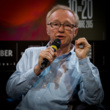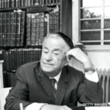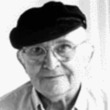Dear zealots : letters from a divided land
(Book)
892.4 OZ
1 available
Copies
| Location | Call Number | Status |
|---|---|---|
| Shirlington - Adult Nonfiction | 892.4 OZ | Available |
Description
More Details
Notes
Similar Titles From NoveList
Similar Authors From NoveList
Published Reviews
Publisher's Weekly Review
Readers unfamiliar with Israeli author and public intellectual Oz (Judas) will find this collection of three essays, adapted from a series of lectures, a good introduction to his nuanced perspective. The title entry, about "the nature of fanaticism and the ways we might curtail it," will have the broadest appeal; Oz examines zealotry in general terms, noting that it predates Judaism, Christianity, and Islam and is not currently limited to radical Islam. His unabashed willingness to discuss "the fanaticism in almost all of Jewish-Israeli society" stems from his experiences while growing up in British-ruled Jerusalem. There, along with other children, he threw stones at the occupying troops in what Oz provocatively terms the "original intifada." His refusal to exempt himself from the label of fanatic suggests a way forward-of individuals embracing the responsibility of "handling the little fanatic who hides, more or less, inside each of our souls." Oz is similarly clear-eyed in the other two essays, "Many Lights, Not One Light," an analysis of Judaism, and "Dreams Israel Should Let Go of Soon." Providing a worthy companion volume to Yossi Klein Halevi's Letters to My Palestinian Neighbor, Oz's book leaves readers with a strong message about the need for a greater societywide openness to doubt and ambiguity. (Nov.) © Copyright PWxyz, LLC. All rights reserved.
Library Journal Review
Award-winning Israeli author Oz (A Tale of Love and Darkness) presents a collection of three essays seeking "the listening ear of those whose opinions differ from" his own. The first piece, from which the book's title is taken, begins by considering the rise of both Islamic and Jewish fanaticism. The second, "Many Lights Not One Light," refers to a range of religious literature in describing Oz's understanding of Judaism as a culture rather than a religion or nationality. He concludes that Israel and the Jews would be better off when they recognize that Judaism has evolved over the years, and suggests that the nation and its residents should change as the world changes. The last section, "Dreams Israel Should Let Go of Soon," deals directly, as the first two did more generally, with the need for a two-state solution. Oz is perhaps the most eloquent of a number of contemporary Israeli writers in advocating for a two-state solution to the Israeli-Palestinian conflict and bringing reason to the situation. VERDICT An important collection on how to listen and live with our neighbors. For all interested in the future of Israel.-Joel Neuberg, Santa Rosa Junior Coll. Lib., CA © Copyright 2018. Library Journals LLC, a wholly owned subsidiary of Media Source, Inc. No redistribution permitted.
Kirkus Book Review
Three passionate lectures about the state of politics in Israel.In this rumination about the country he loves and whose policies make him ashamed, novelist and peace activist Oz (Judas, 2016, etc.) sounds humorous, mournful, enraged, and uplifting. In the title essay, "Dear Zealots," the author argues, noncontroversially, that zealotry can be found among all peoples, places, and religions. Oz particularly bemoans not only Islamic fanaticism, but Jewish fanaticism. In one of the book's sharpest insights, he suggests that Jewish-Israeli fanaticism is increasing in part because while the Holocaust and Stalinism seemed to have infused people, for a few decades, with a fear of extremism, that "gift" is fading as the years pass. The second piece locates the "heart of Judaism" in the call to protect, and demand justice for, the weak and the oppressed. Oz argues that Israel is moving further away from that heart and that the left has too readily accepted the idea that real Judaism is the possession of the ultra-Orthodox or the settlers, not of the justice-seeking secularists. In one of the book's most memorable lines, which could serve as a fitting slogan for the Zionist left and its allies around the world, the author declares, "what occurs inside the borders is exponentially more important than what their outline should be." In the final essay, Oz urges a two-state solution, the national equivalent, writes the author, of a duplex. If that doesn't happen soon, there will be "an Arab state from the Mediterranean to the Jordan" preceded by "a racist regime" of "fanatic Jews" trying to prevent said Arab state and possibly by a bloodbath. It's a pessimistic prophecy, but Oz maintains there's rarely been a better moment to make peace than now. And while a peace treaty won't make everything perfect, without one, "things will be worse."Slender but forceful. Copyright Kirkus Reviews, used with permission.
Library Journal Reviews
Celebrated Israeli novelist Oz writes nonfiction, too, including the three essays collected here, relevant to our polarized, populist world: they treat the nature of fanaticism, the Jewish roots of humanism, and Israel's geopolitical standing. Oz says he wrote them for his grandchildren, but they're good for us all.
Copyright 2018 Library Journal.Library Journal Reviews
Award-winning Israeli author Oz (A Tale of Love and Darkness) presents a collection of three essays seeking "the listening ear of those whose opinions differ from" his own. The first piece, from which the book's title is taken, begins by considering the rise of both Islamic and Jewish fanaticism. The second, "Many Lights Not One Light," refers to a range of religious literature in describing Oz's understanding of Judaism as a culture rather than a religion or nationality. He concludes that Israel and the Jews would be better off when they recognize that Judaism has evolved over the years, and suggests that the nation and its residents should change as the world changes. The last section, "Dreams Israel Should Let Go of Soon," deals directly, as the first two did more generally, with the need for a two-state solution. Oz is perhaps the most eloquent of a number of contemporary Israeli writers in advocating for a two-state solution to the Israeli-Palestinian conflict and bringing reason to the situation. VERDICT An important collection on how to listen and live with our neighbors. For all interested in the future of Israel.—Joel Neuberg, Santa Rosa Junior Coll. Lib., CA
Copyright 2018 Library Journal.Publishers Weekly Reviews
Readers unfamiliar with Israeli author and public intellectual Oz (Judas) will find this collection of three essays, adapted from a series of lectures, a good introduction to his nuanced perspective. The title entry, about "the nature of fanaticism and the ways we might curtail it," will have the broadest appeal; Oz examines zealotry in general terms, noting that it predates Judaism, Christianity, and Islam and is not currently limited to radical Islam. His unabashed willingness to discuss "the fanaticism in almost all of Jewish-Israeli society" stems from his experiences while growing up in British-ruled Jerusalem. There, along with other children, he threw stones at the occupying troops in what Oz provocatively terms the "original intifada." His refusal to exempt himself from the label of fanatic suggests a way forward—of individuals embracing the responsibility of "handling the little fanatic who hides, more or less, inside each of our souls." Oz is similarly clear-eyed in the other two essays, "Many Lights, Not One Light," an analysis of Judaism, and "Dreams Israel Should Let Go of Soon." Providing a worthy companion volume to Yossi Klein Halevi's Letters to My Palestinian Neighbor, Oz's book leaves readers with a strong message about the need for a greater societywide openness to doubt and ambiguity. (Nov.)
Copyright 2018 Publishers Weekly.Reviews from GoodReads
Citations
Oz, A., & Cohen, J. (. (2018). Dear zealots: letters from a divided land . Houghton Mifflin Harcourt.
Chicago / Turabian - Author Date Citation, 17th Edition (style guide)Oz, Amos, 1939-2018 and Jessica (Translator) Cohen. 2018. Dear Zealots: Letters From a Divided Land. Boston: Houghton Mifflin Harcourt.
Chicago / Turabian - Humanities (Notes and Bibliography) Citation, 17th Edition (style guide)Oz, Amos, 1939-2018 and Jessica (Translator) Cohen. Dear Zealots: Letters From a Divided Land Boston: Houghton Mifflin Harcourt, 2018.
Harvard Citation (style guide)Oz, A. and Cohen, J. (. (2018). Dear zealots: letters from a divided land. Boston: Houghton Mifflin Harcourt.
MLA Citation, 9th Edition (style guide)Oz, Amos, and Jessica (Translator) Cohen. Dear Zealots: Letters From a Divided Land Houghton Mifflin Harcourt, 2018.
































